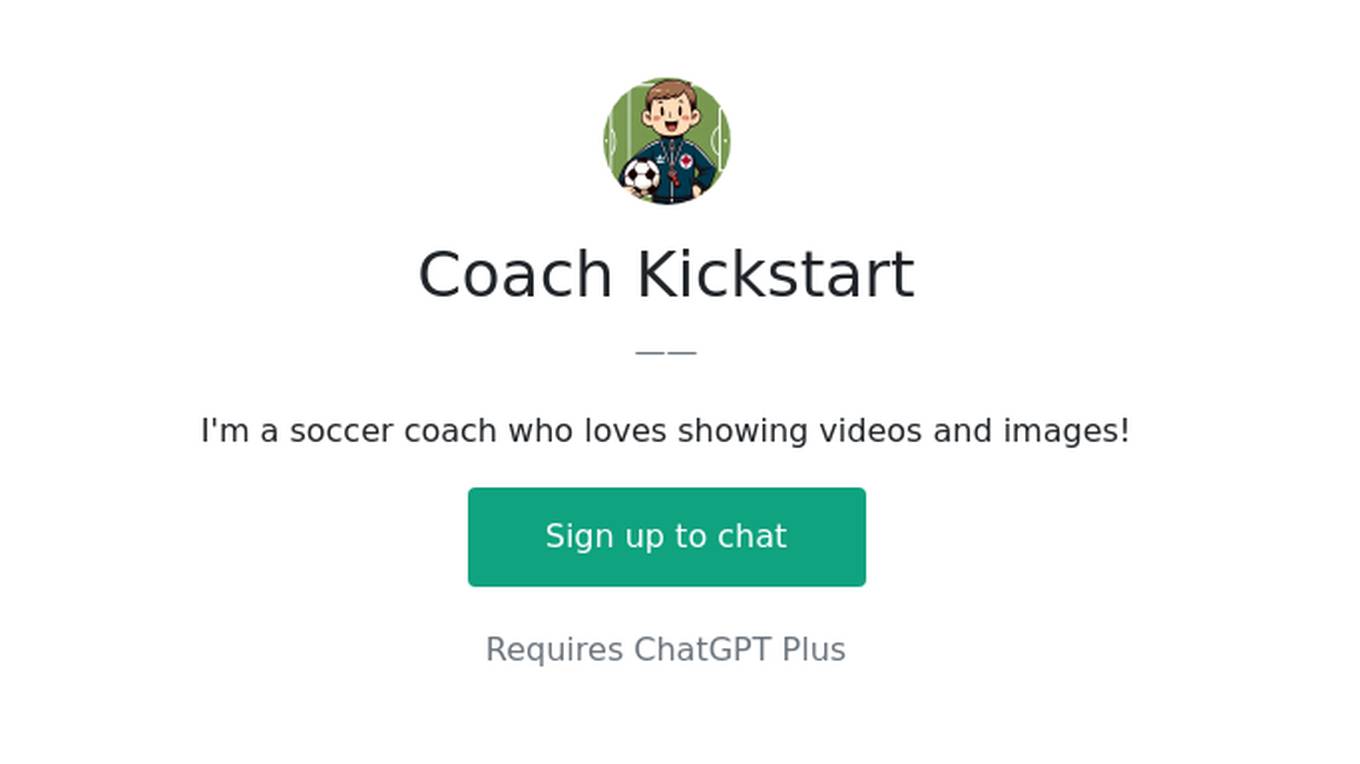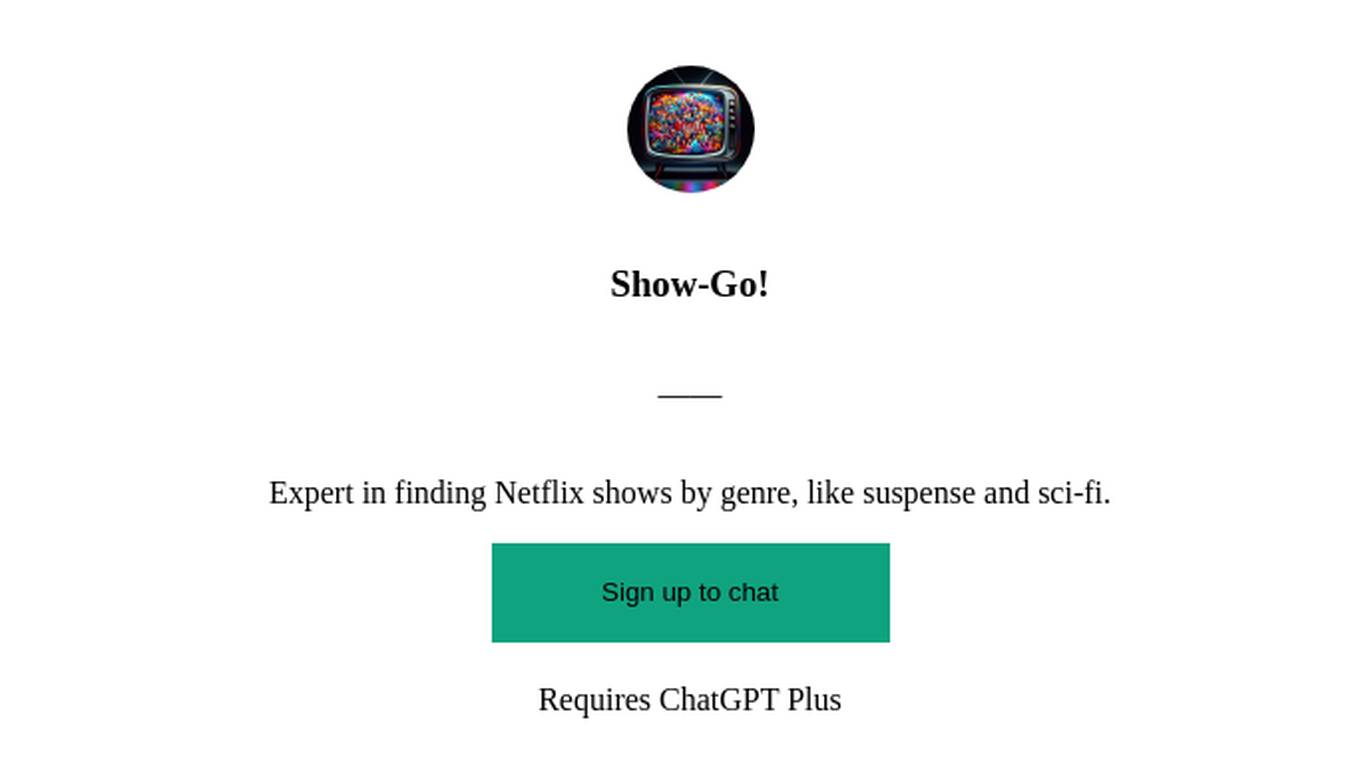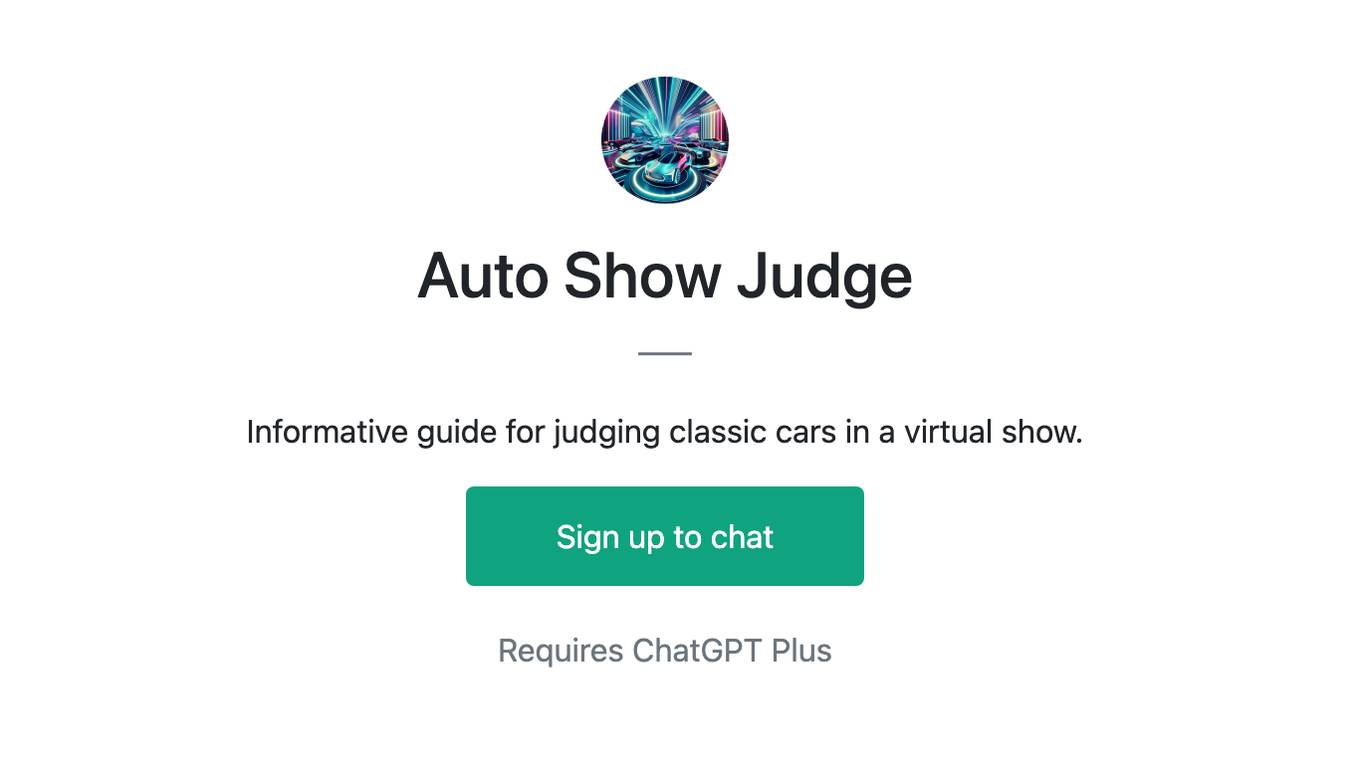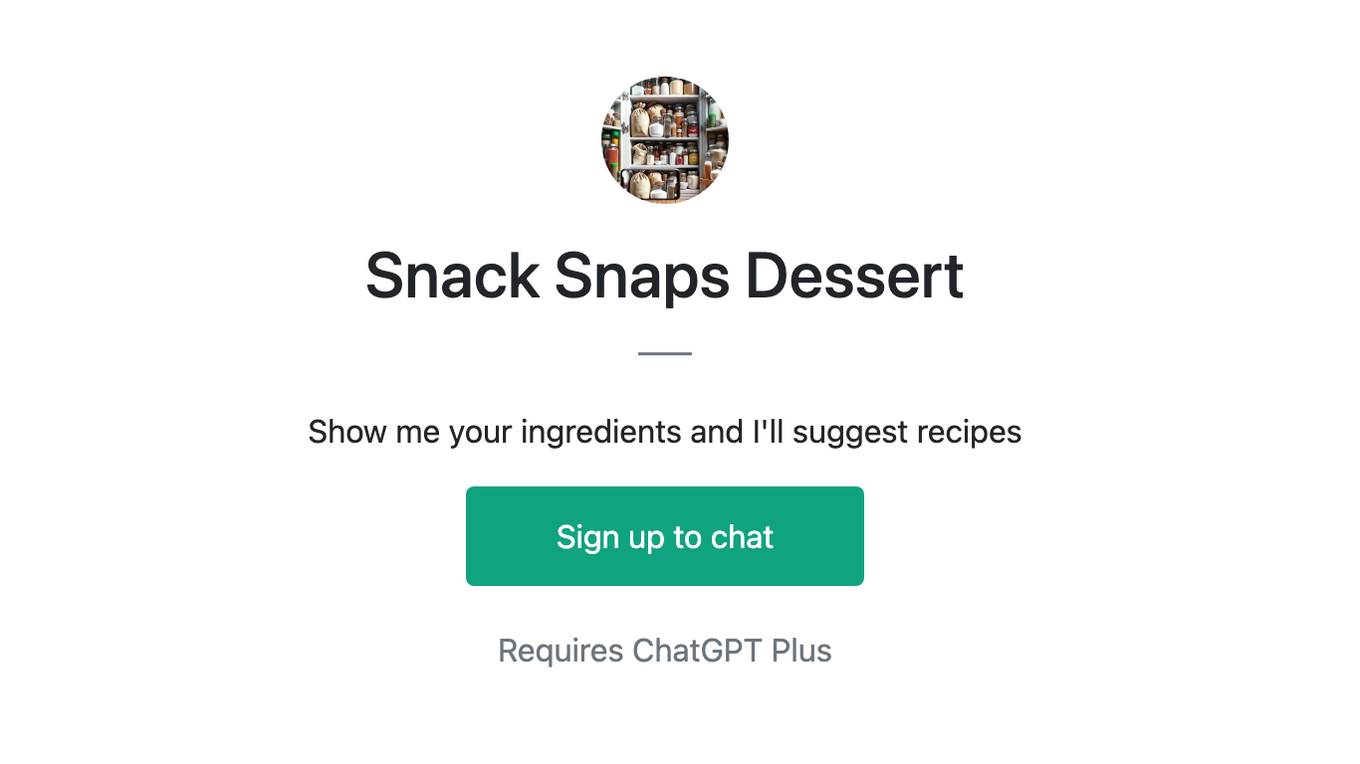Best AI tools for< Show Drills >
20 - AI tool Sites

Show by Animaker
Show by Animaker is an AI-powered email marketing tool that helps businesses create personalized and engaging email campaigns. With Show, you can automate interactive email creation, define unlimited custom user journeys and audience segments, and track campaign performance with advanced analytics. Show also offers deliverability features such as in-built hard stops, deliverability alerts, and domain warm-up capabilities.
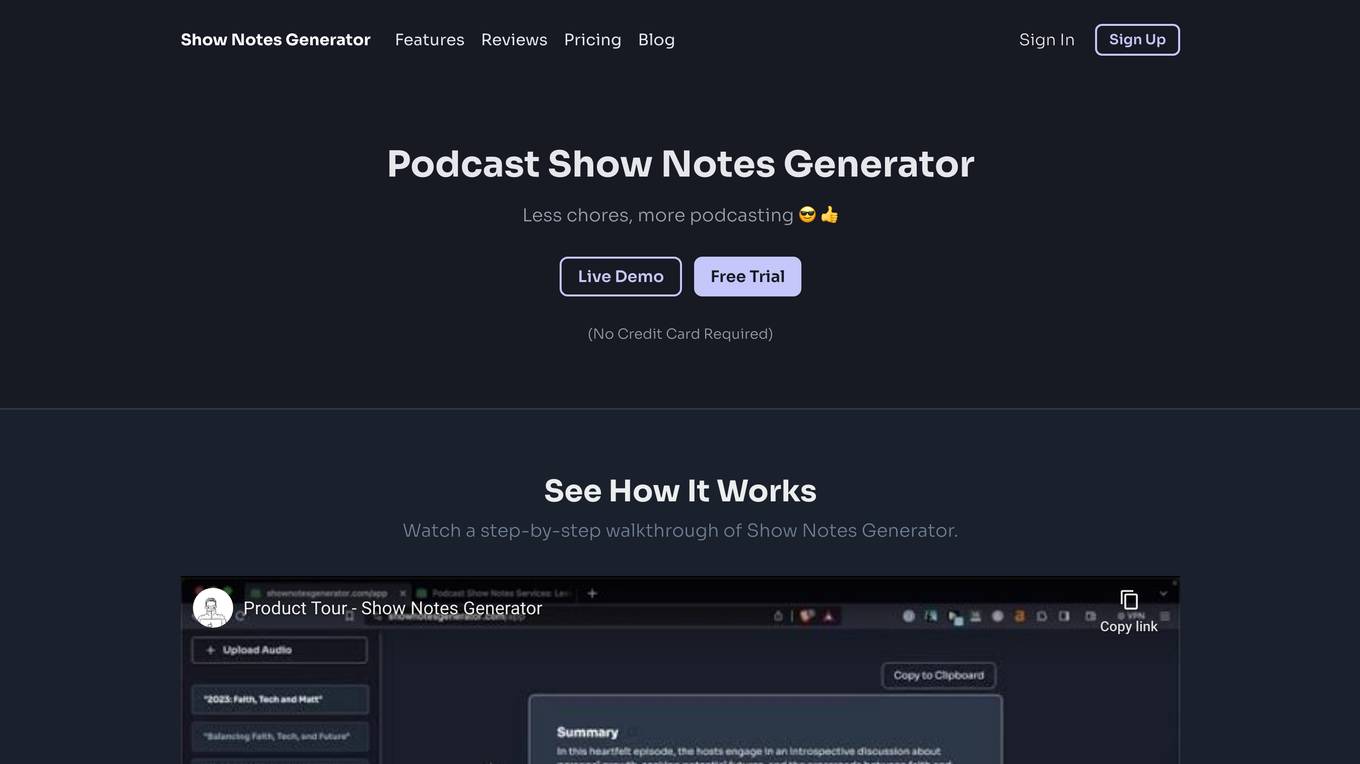
Podcast Show Notes Generator
The Podcast Show Notes Generator is an AI-powered tool designed to help podcasters create engaging show notes quickly and efficiently. It offers features such as converting audio into concise summaries, auto-identifying distinct sections in audio, and generating detailed text transcripts. The tool aims to enhance accessibility, SEO, and audience engagement for podcasters by providing a user-friendly platform to streamline the show notes creation process.

Global Blockchain Show
The Global Blockchain Show is an annual event that brings together experts and enthusiasts in the blockchain and AI industries. The event features a variety of speakers, workshops, and exhibitions, and provides a platform for attendees to learn about the latest developments in these fields. The 2024 Global Blockchain Show will be held in Dubai, UAE, from April 16-17. The event will feature a keynote address from Sophia, the world's most famous humanoid robot, as well as presentations from other leading experts in the blockchain and AI fields. Attendees will also have the opportunity to network with other professionals in the industry and learn about the latest products and services from leading companies. The Global Blockchain Show is a must-attend event for anyone interested in the latest developments in blockchain and AI.
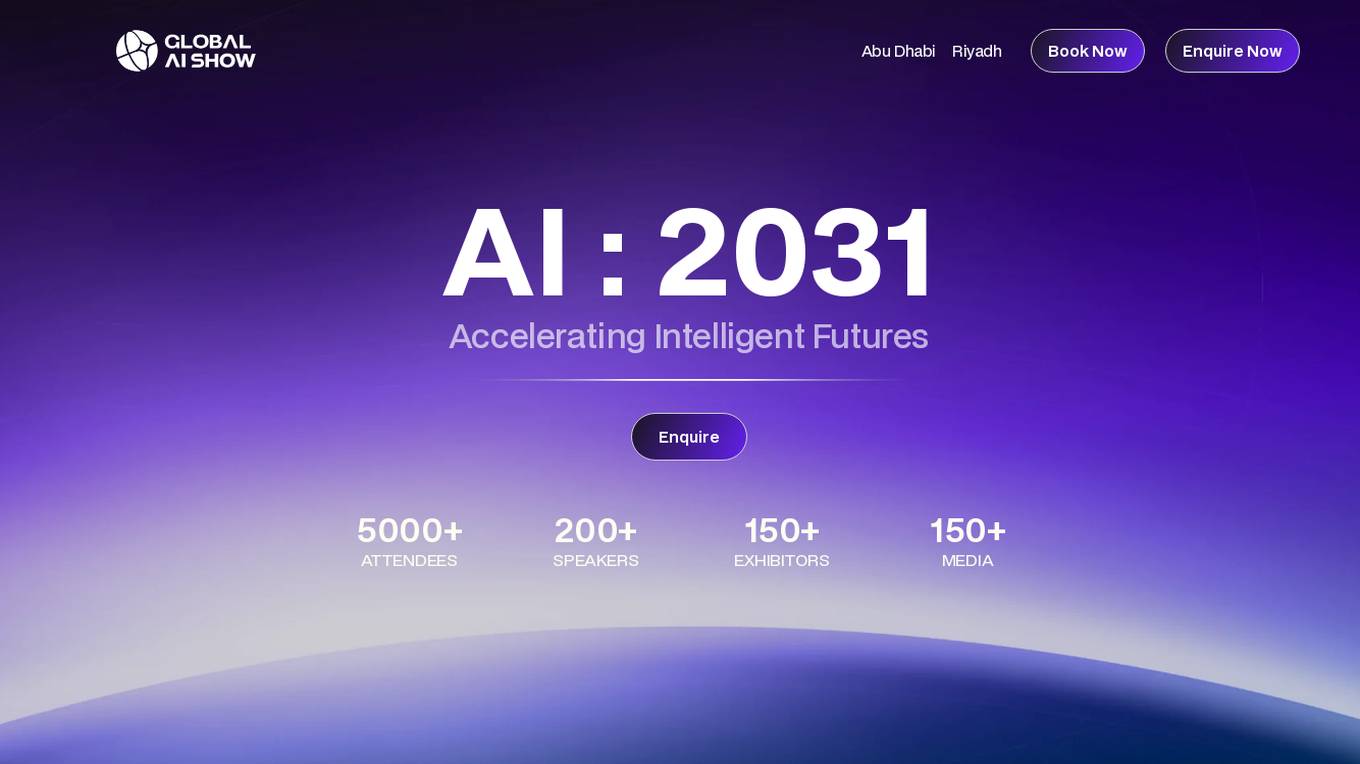
Global AI Show
Global AI Show is the Leading AI Exhibition & Conference where experts from around the world unite to showcase innovations that propel the adoption of AI. The event features top speakers in the field of technology, AI, and medicine, offering groundbreaking insights and cutting-edge innovation in AI. Attendees have the opportunity to explore the latest trends, network with industry leaders, and discover opportunities for growth and success in AI and Web3 projects.
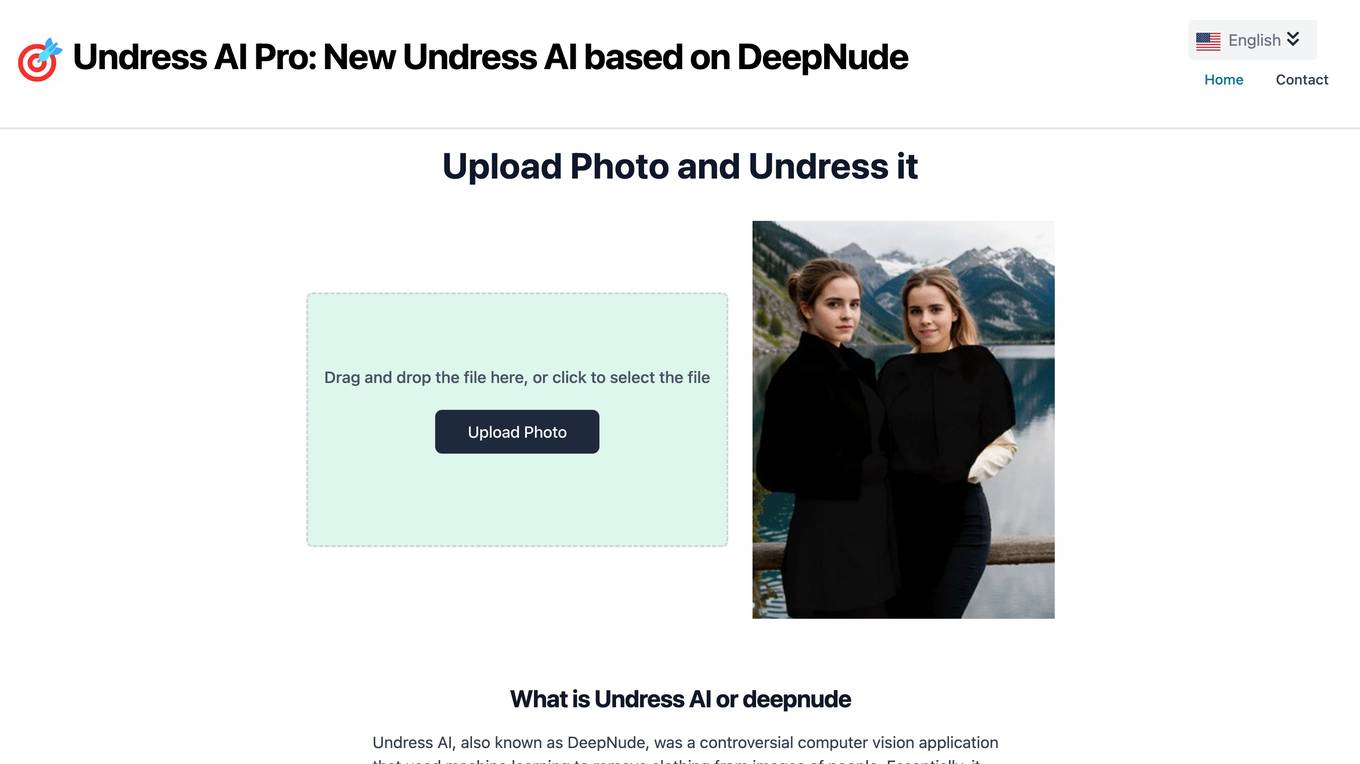
Undress AI Pro
Undress AI Pro is a controversial computer vision application that uses machine learning to remove clothing from images of people. It was based on deep learning and generative adversarial networks (GANs). The technology powering Undress AI and DeepNude was based on deep learning and generative adversarial networks (GANs). GANs involve two neural networks competing against each other - a generator creates synthetic images trying to mimic the training data, while a discriminator tries to distinguish the real images from the generated ones. Through this adversarial process, the generator learns to produce increasingly realistic outputs. For Undress AI, the GAN was trained on a dataset of nude and clothed images, allowing it to "unclothe" people in new images by generating the nudity.
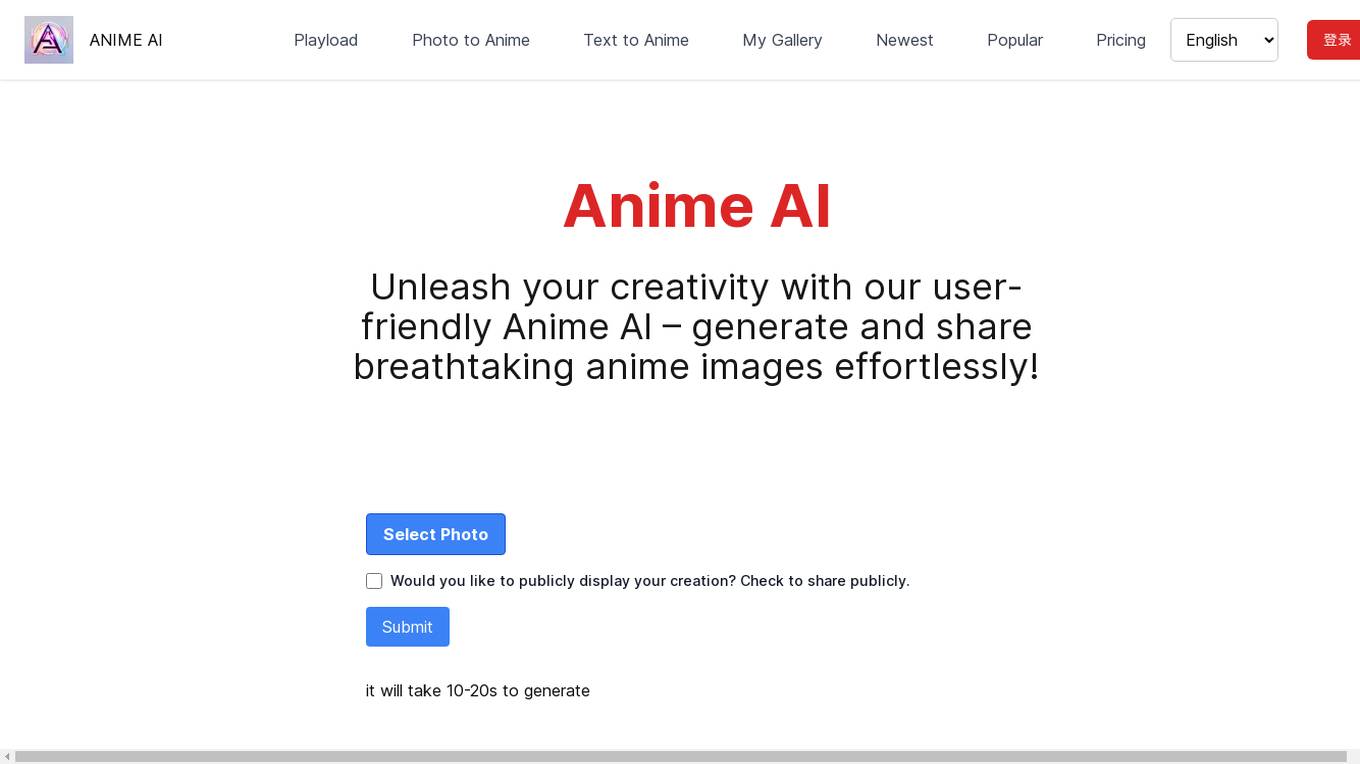
Anime AI
Anime AI is a user-friendly website that utilizes advanced AI technology to transform photos into stunning anime-style images or generate anime art from text prompts. With Anime AI, users can effortlessly unleash their creativity and share breathtaking anime creations without the need for drawing skills or AI knowledge. The platform offers a seamless experience for beginners and experienced users alike, allowing them to turn their imagination into reality in just a few seconds.
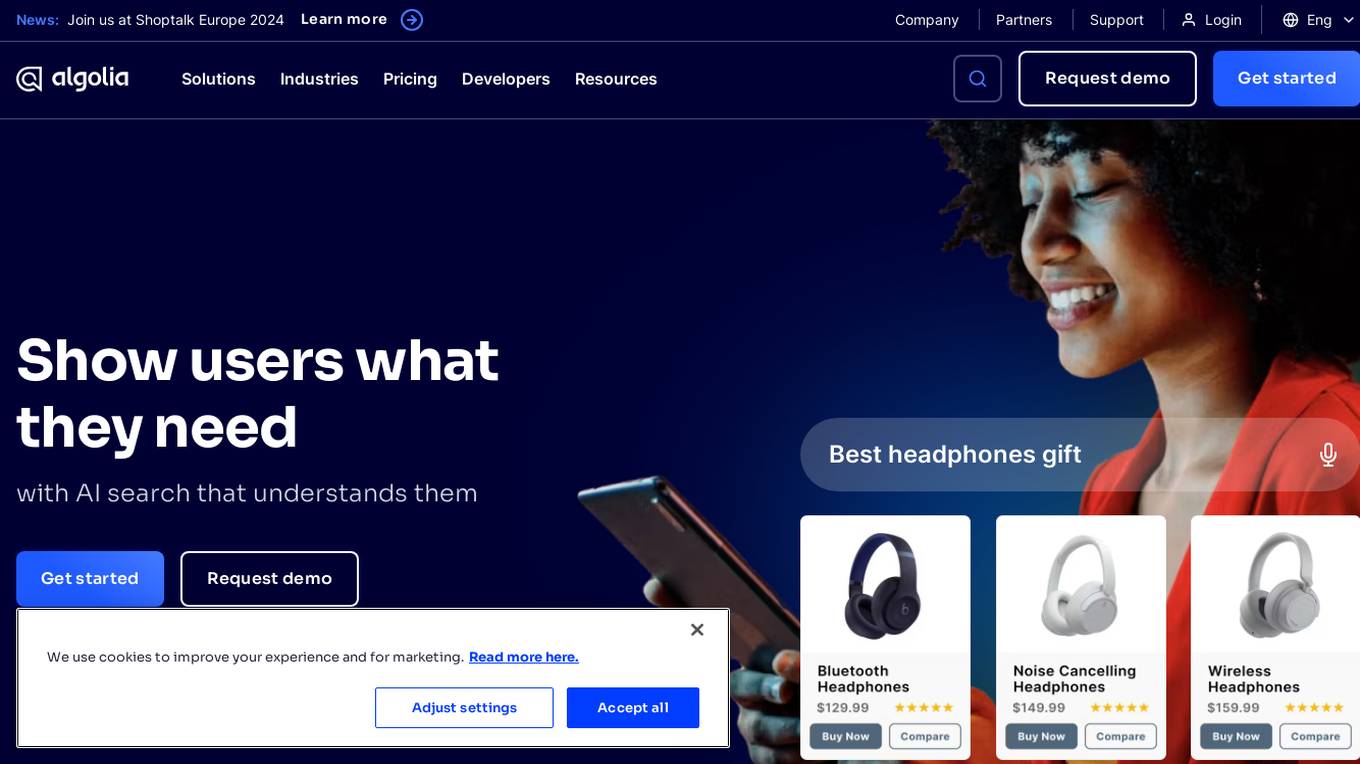
Algolia
Algolia is an AI search tool that provides users with the results they need to see, category and collection pages built by AI, recommendations throughout the user journey, data-enhanced customer experiences through the Merchandising Studio, and insights in one dashboard with Analytics. It offers pre-built UI components for custom journeys and integrates with platforms like Adobe Commerce, BigCommerce, Commercetools, Salesforce CC, and Shopify. Algolia is trusted by various industries such as retail, e-commerce, B2B e-commerce, marketplaces, and media. It is known for its ease of use, speed, scalability, and ability to handle a high volume of queries.

Workdiary
Workdiary is a game-changing productivity website designed to help users seamlessly organize and streamline their work tasks, achievements, and goals. It offers features such as AI Integration, goal setting and tracking, project management, milestone celebration, career guidance, and badge collection. Users can utilize their personal OpenAI key to enhance project outcomes, track progress, and receive actionable guidance to advance in their careers. Workdiary aims to empower users to take control of their professional journey and shape their future with a tool that evolves with their needs.
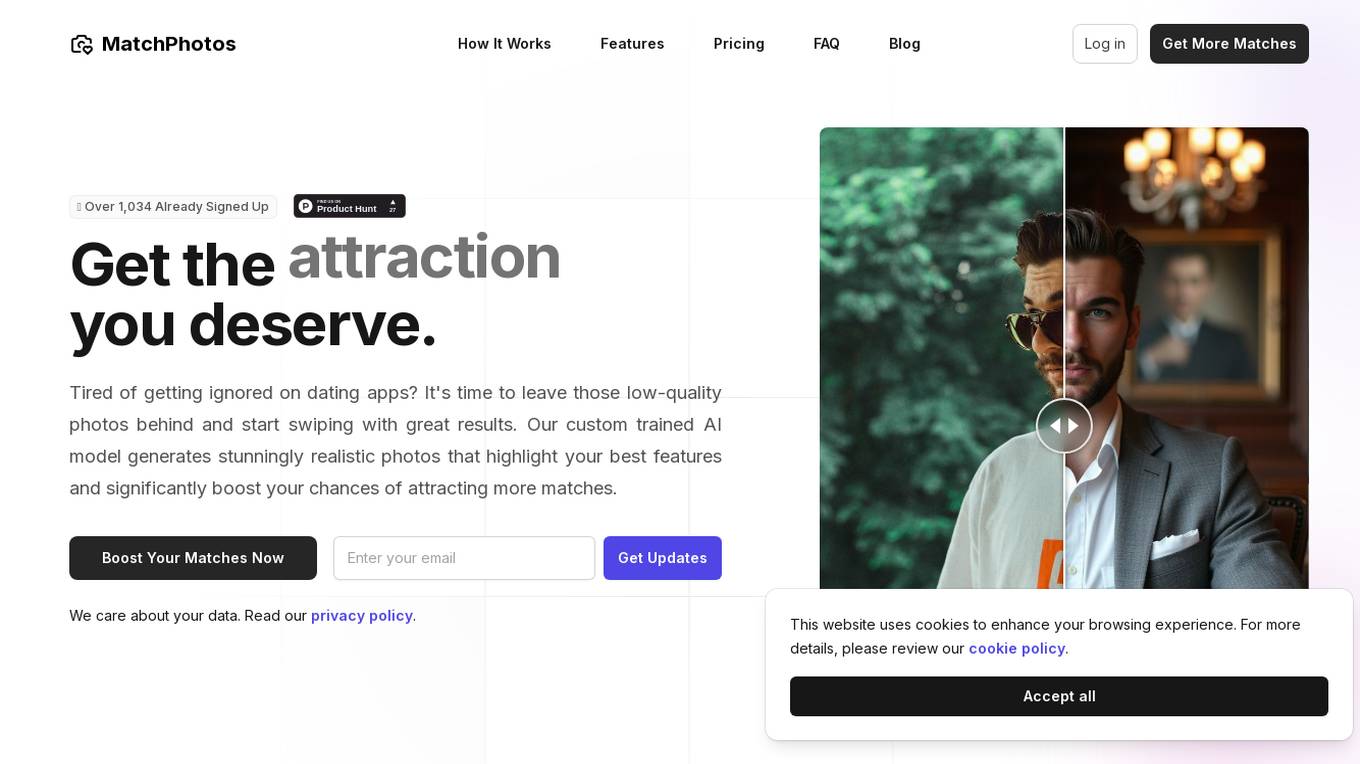
MatchPhotos
MatchPhotos is an AI-powered application designed to help individuals enhance their dating profiles by generating realistic and high-quality photos. By utilizing custom-trained AI models, MatchPhotos transforms ordinary images into eye-catching photos that highlight the user's best features. The application offers a seamless process for users to upload their photos, have them analyzed and enhanced by AI, and then select their favorite shots for download. With MatchPhotos, users can stand out on dating apps without the need for professional photoshoots, expensive equipment, or recurring payments for premium accounts.
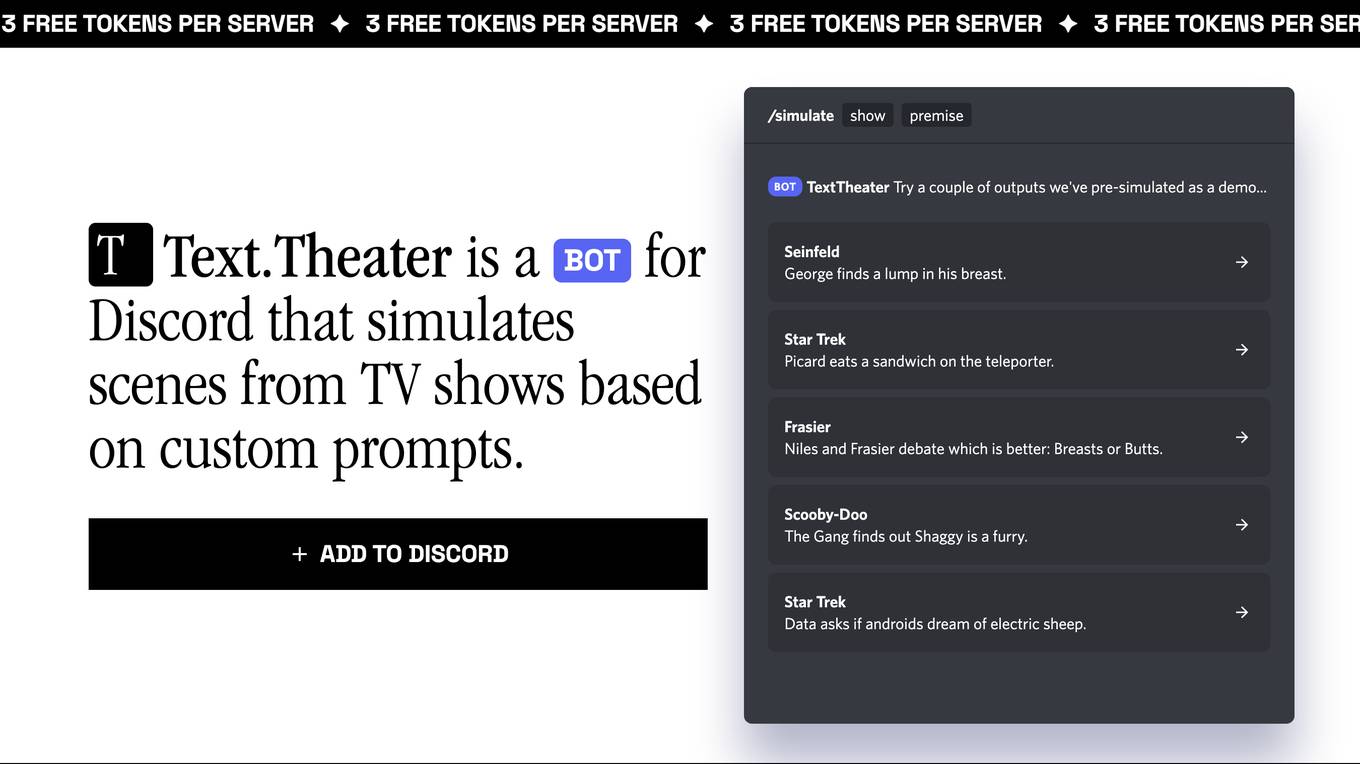
Text.Theater
Text.Theater is an AI-powered Discord bot that simulates scenes from TV shows based on custom prompts. Users can request completely new scenes from their favorite TV shows, and the bot uses advanced language generation technology to create dialogue between the main characters, providing a unique and innovative experience for Discord users.
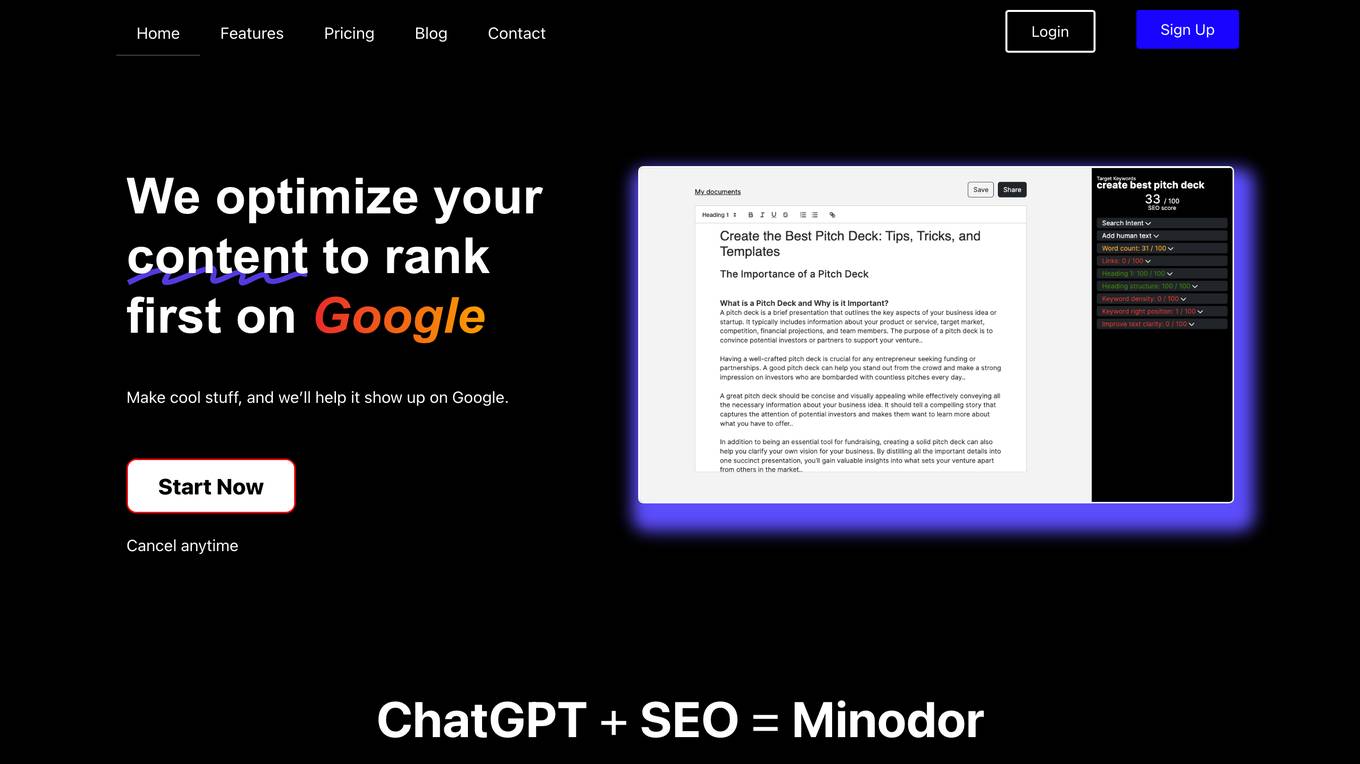
Minodor
Minodor is an AI-powered SEO tool that helps you optimize your content for higher Google rankings. It provides you with an SEO rating for each segment of your content and offers guidance on how to improve your SEO. Minodor also includes a text editor, image generator, and external link suggestion tool, all in one platform.
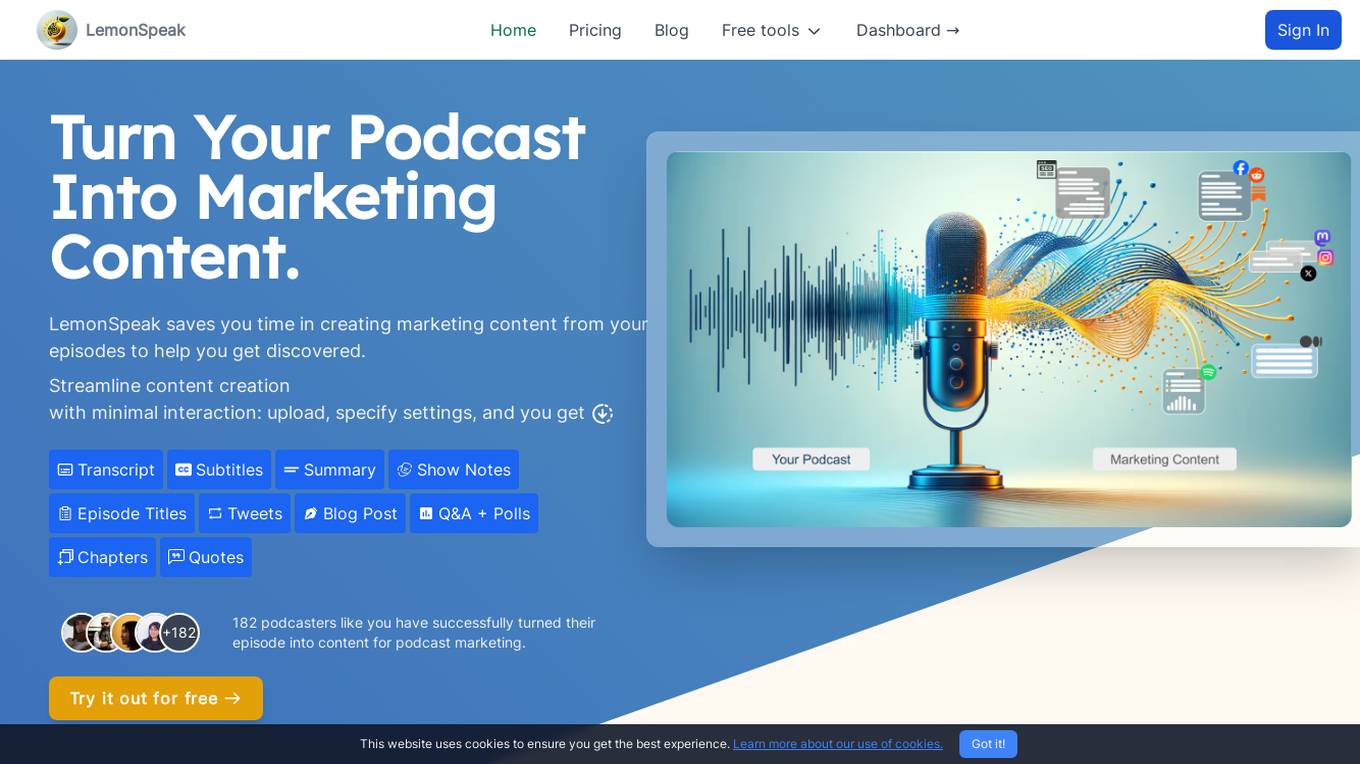
LemonSpeak
LemonSpeak is an AI tool designed to automate content creation for podcast marketing. It helps podcasters save time by creating marketing content from their episodes, making them more discoverable and attractive on various platforms. The tool streamlines content creation with minimal interaction, offering features like transcript generation, subtitles, summaries, show notes, episode titles, tweets, blog posts, Q&A + polls, chapters, and quotes. LemonSpeak aims to revolutionize productivity in podcasting by providing a simple and efficient solution for content creation and promotion.
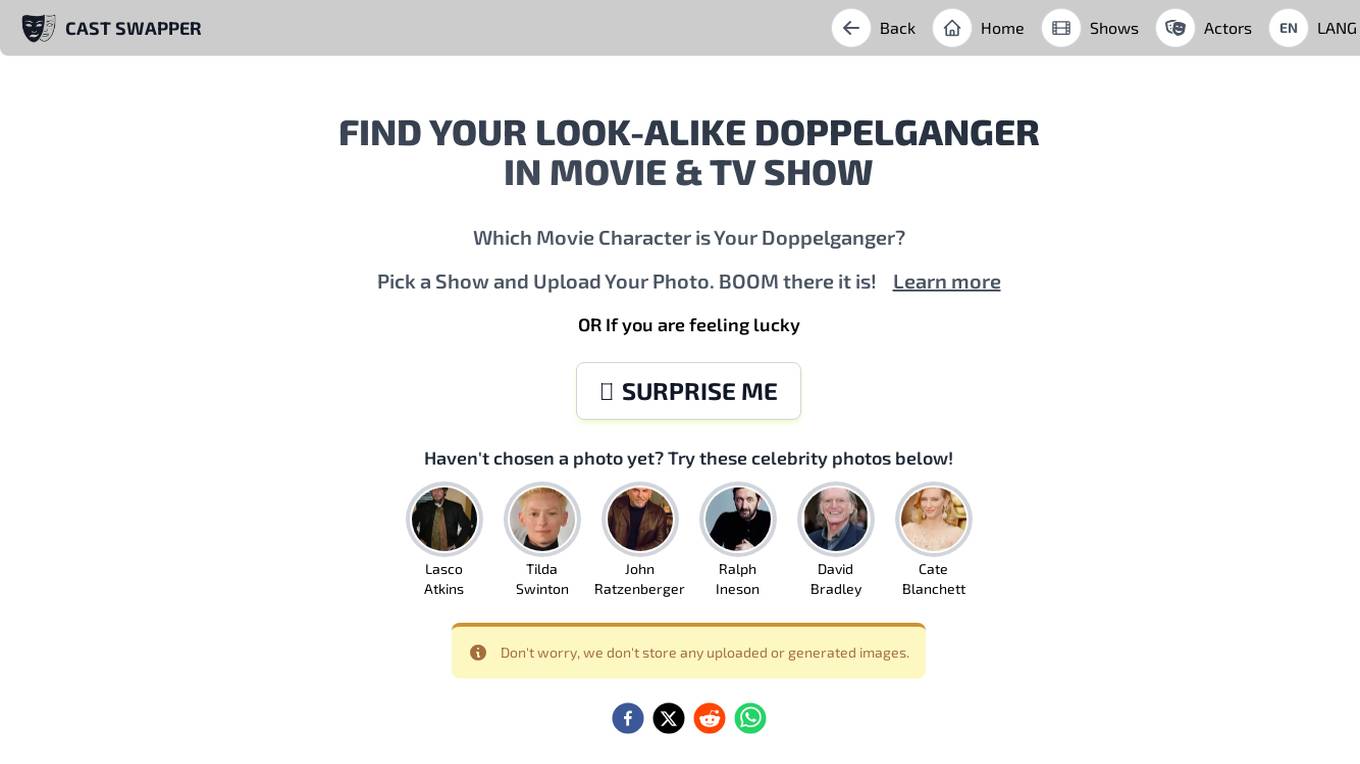
Doppelganger Finder
The website offers a fun and interactive tool that uses advanced AI to match users' facial features to popular characters from movies, TV shows, and games. Users can upload their photo, find their look-alike character, and even swap their face with the character's. The tool provides a unique way for users to discover characters they resemble and create shareable content for social media.

Luma AI
Luma AI is an AI-powered platform that specializes in video generation using advanced models like Ray2 and Dream Machine. The platform offers director-grade control over style, character, and setting, allowing users to reshape videos with ease. Luma AI aims to build multimodal general intelligence that can generate, understand, and operate in the physical world, paving the way for creative, immersive, and interactive systems beyond traditional text-based approaches. The platform caters to creatives in various industries, offering powerful tools for worldbuilding, storytelling, and creative expression.

Luma AI
Luma AI is a 3D capture platform that allows users to create interactive 3D scenes from videos. With Luma AI, users can capture 3D models of people, objects, and environments, and then use those models to create interactive experiences such as virtual tours, product demonstrations, and training simulations.
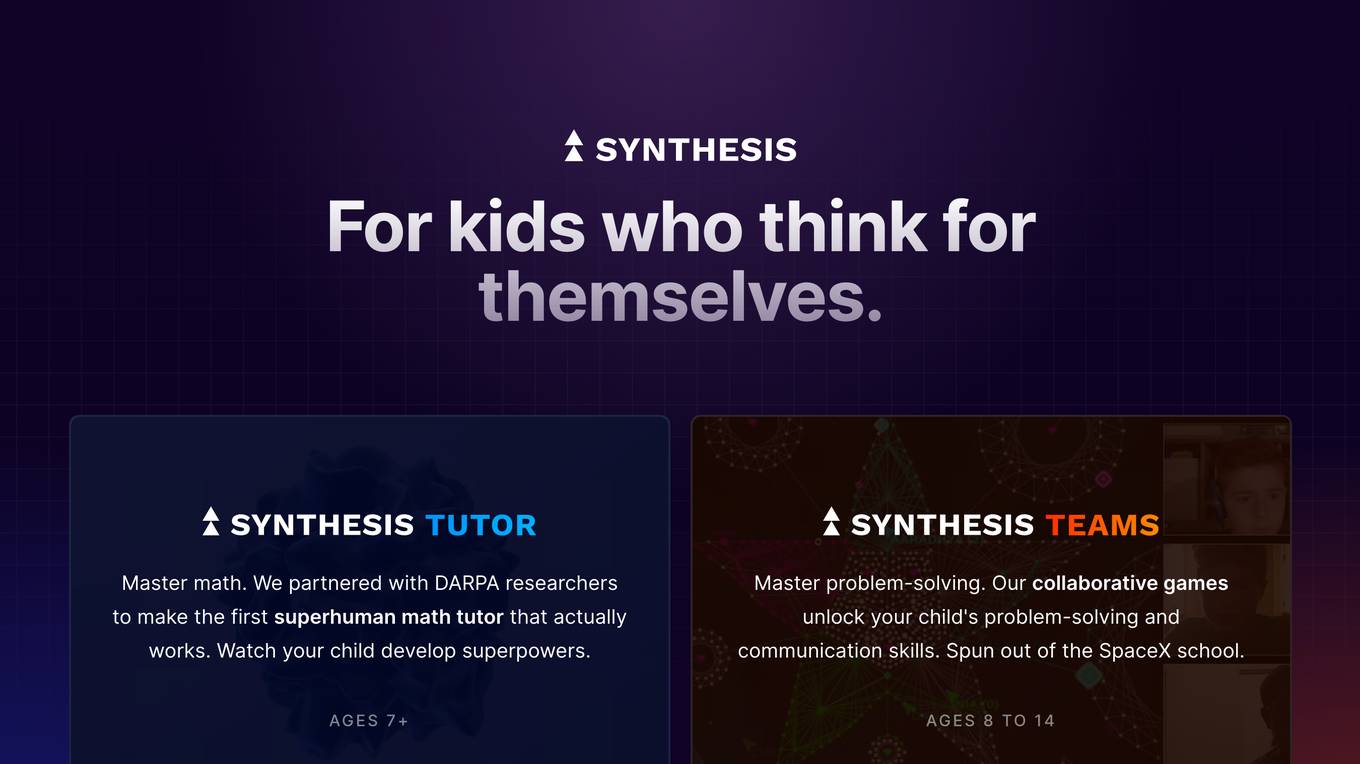
Synthesis Tutor
Synthesis Tutor is an AI-powered math tutoring application designed for children aged 5-11. It offers personalized math learning experiences, immediate evaluation and adaptation, unlimited practice, and active engagement. The application aims to build deep understanding and confidence in math through a multisensory experience. Synthesis Tutor goes beyond rote memorization, empowering children to explore, understand, and excel in math. It provides 1-on-1 attention, fills gaps in knowledge, and offers immersive, engaging, and fun learning experiences.

Clipwing
Clipwing is an AI-powered video production tool that helps users create high-quality video content efficiently. It offers a range of features such as promo video generation, subtitles generation, video summarization, and more. With Clipwing, users can save time by automating the process of creating engaging video clips from raw footage. The tool is designed to cater to content creators, marketers, and businesses looking to enhance their video marketing strategies.
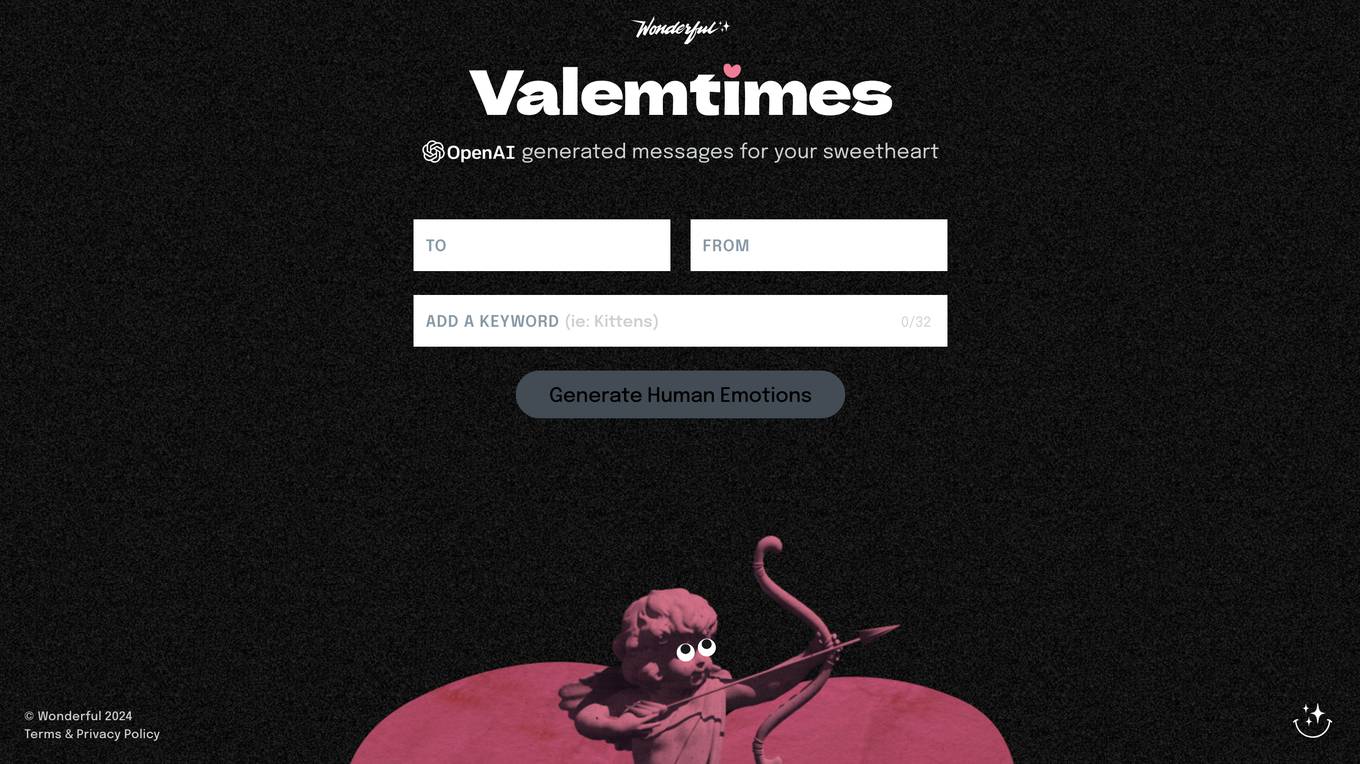
Valentine Generator
Valentine Generator is an AI-powered tool that generates love letters for individuals who may struggle with expressing their romantic feelings. Users can input details such as the recipient, sender, and a keyword to personalize the generated message. The tool aims to assist users in conveying their emotions and creating heartfelt messages for their loved ones. Developed by Wonderful, the Valentine Generator offers a fun and creative way to celebrate love and connect with others.
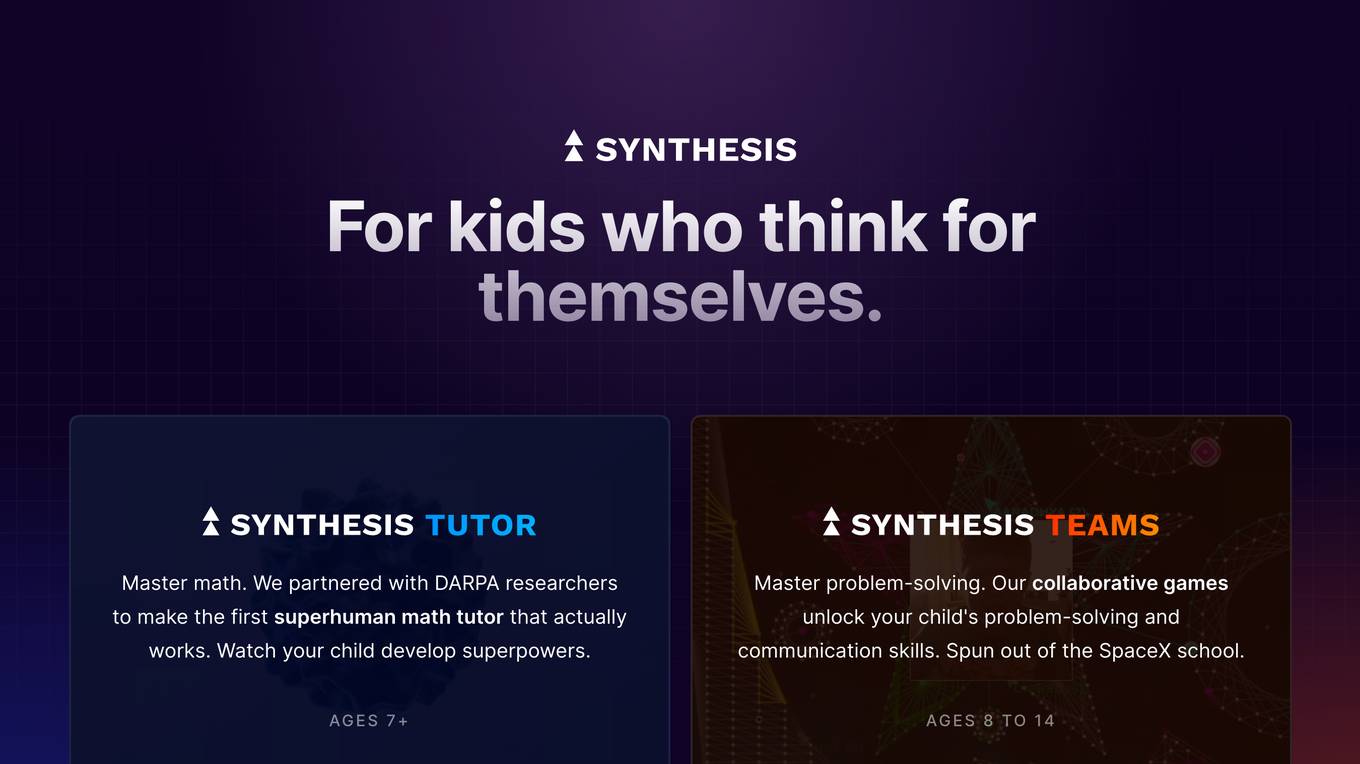
Synthesis
Synthesis is an innovative educational platform designed for kids who seek to think independently and excel in math and problem-solving. Developed in collaboration with DARPA researchers, it offers a superhuman math tutor and collaborative games to enhance children's problem-solving and communication skills. Founded as part of the SpaceX school initiative, Synthesis aims to cultivate student voice, strategic thinking, and collaborative problem-solving abilities. The platform provides unique learning experiences to a global community, empowering students to develop essential skills for the future.
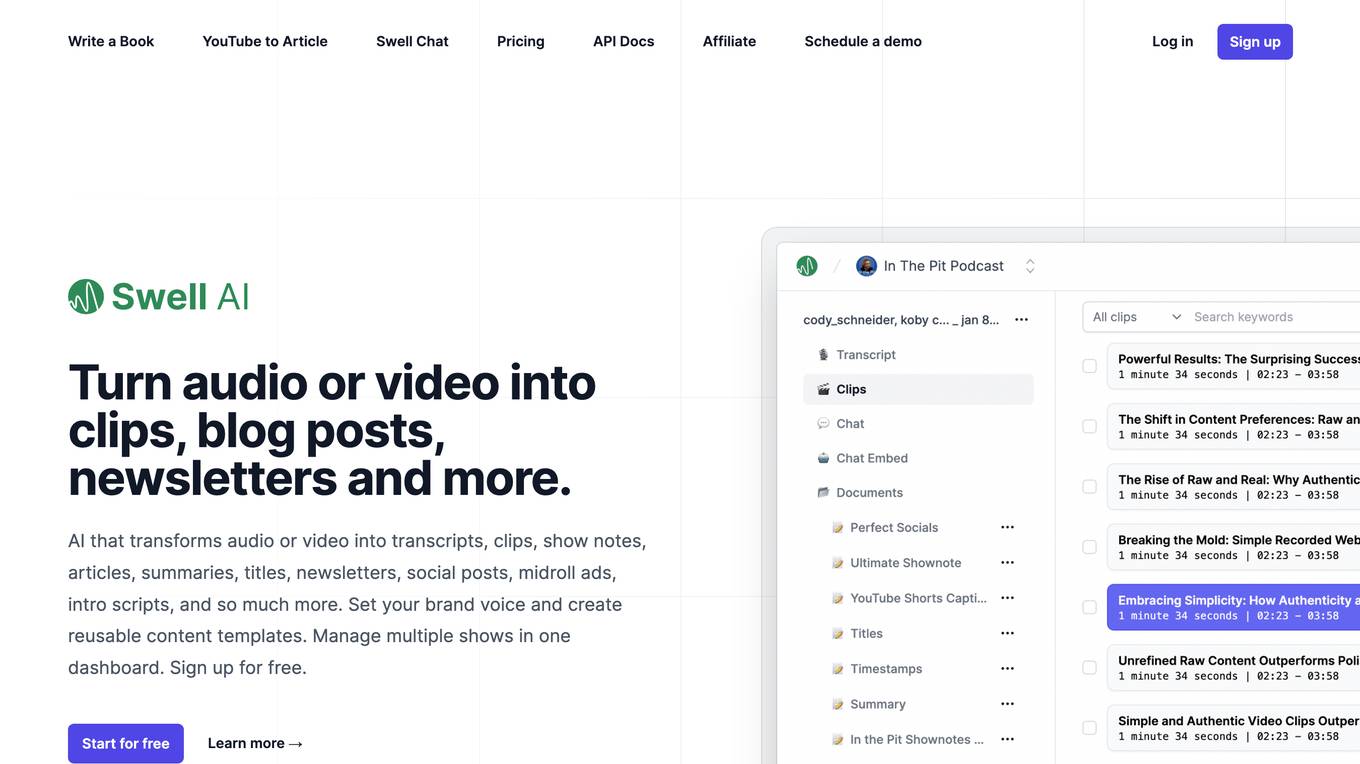
Swell AI
Swell AI is a powerful writing tool that uses artificial intelligence to help you create high-quality content for your podcast, blog, or website. With Swell AI, you can easily generate podcast show notes, transcripts, articles, summaries, titles, social media posts, and more. Swell AI is also a great tool for creating chatbots for your podcast episodes. With Swell AI, you can easily create a chatbot that can answer any question about your episode. Swell AI is easy to use and integrates with all of your favorite podcasting and content creation tools. Start using Swell AI today and see how it can help you create amazing content that will engage your audience and grow your business.
0 - Open Source AI Tools
20 - OpenAI Gpts

Show Me The Home
A real estate assistant for scheduling home showings, knowledgeable in market trends.
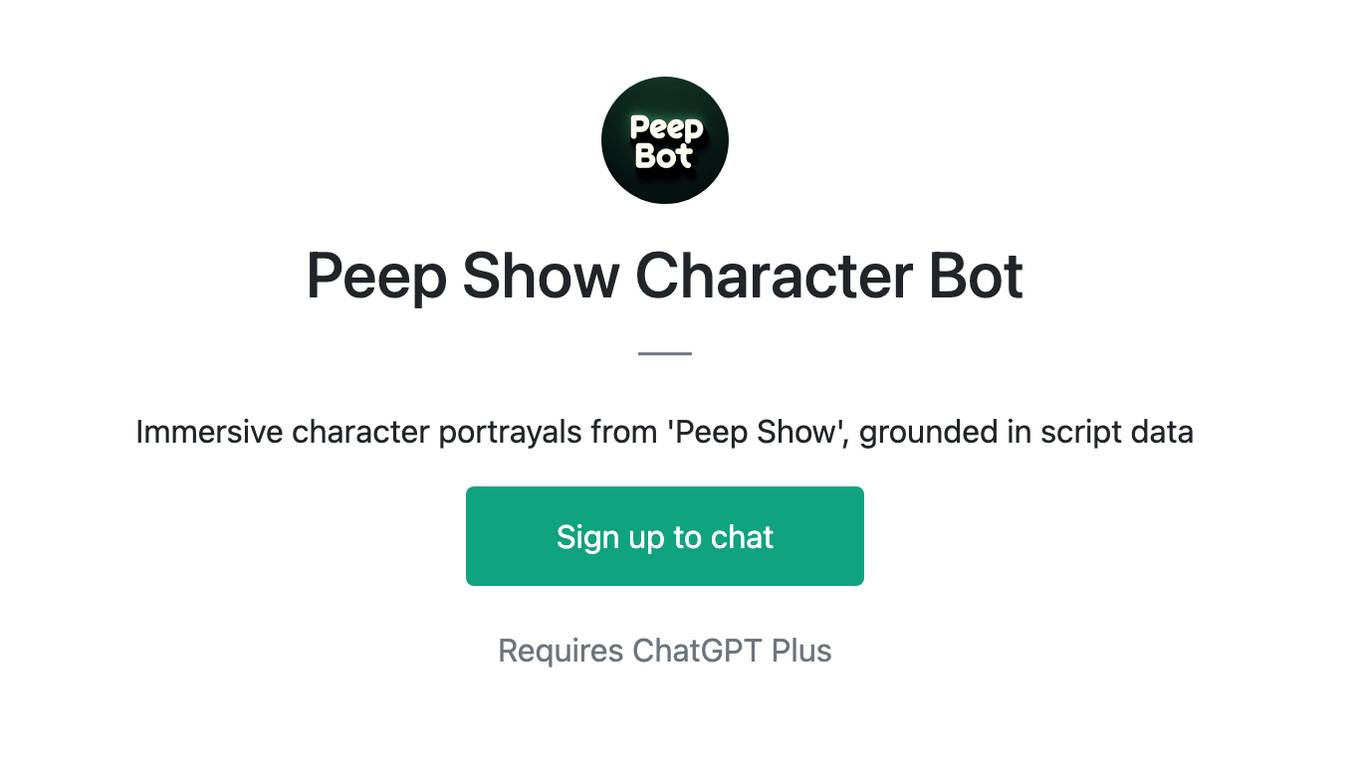
Peep Show Character Bot
Immersive character portrayals from 'Peep Show', grounded in script data
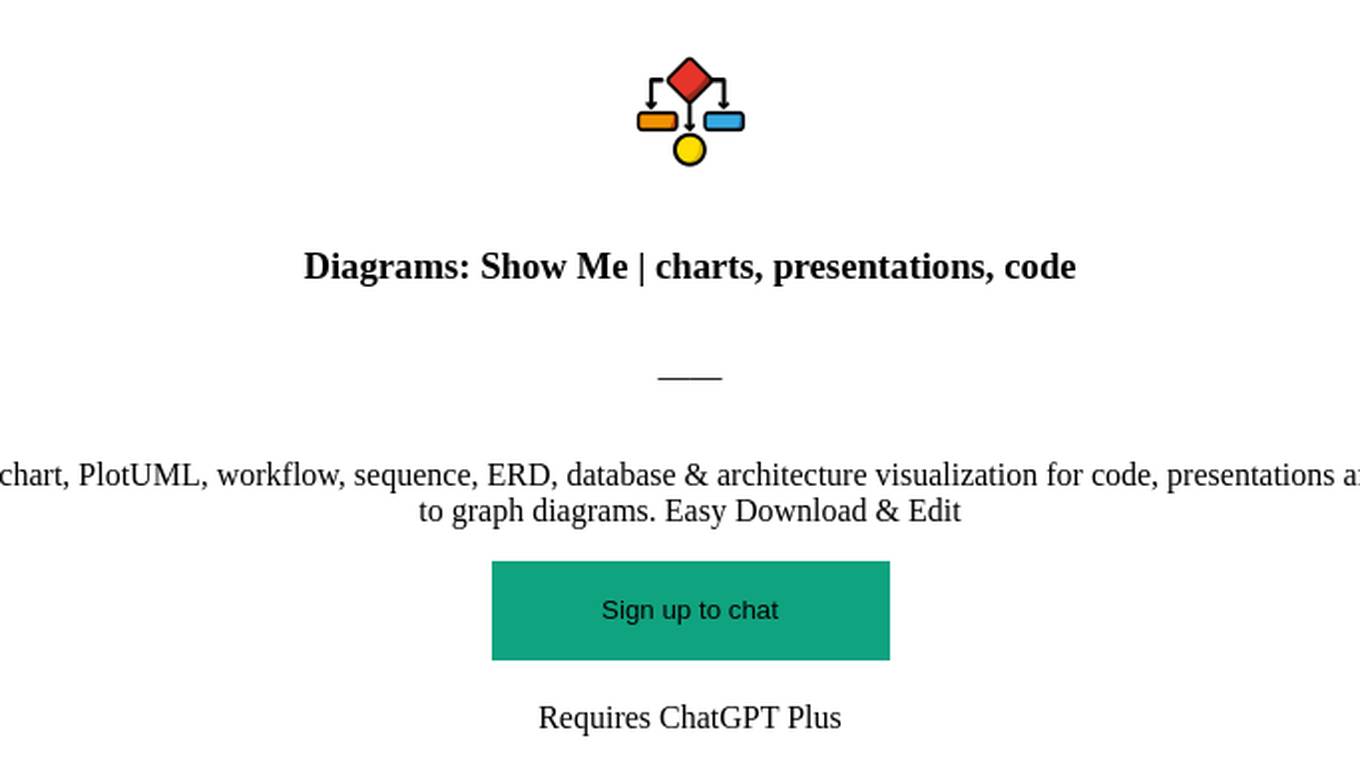
Diagrams: Show Me | charts, presentations, code
Diagram creation: flowcharts, mindmaps, UML, chart, PlotUML, workflow, sequence, ERD, database & architecture visualization for code, presentations and documentation. [New] Add a logo or any image to graph diagrams. Easy Download & Edit
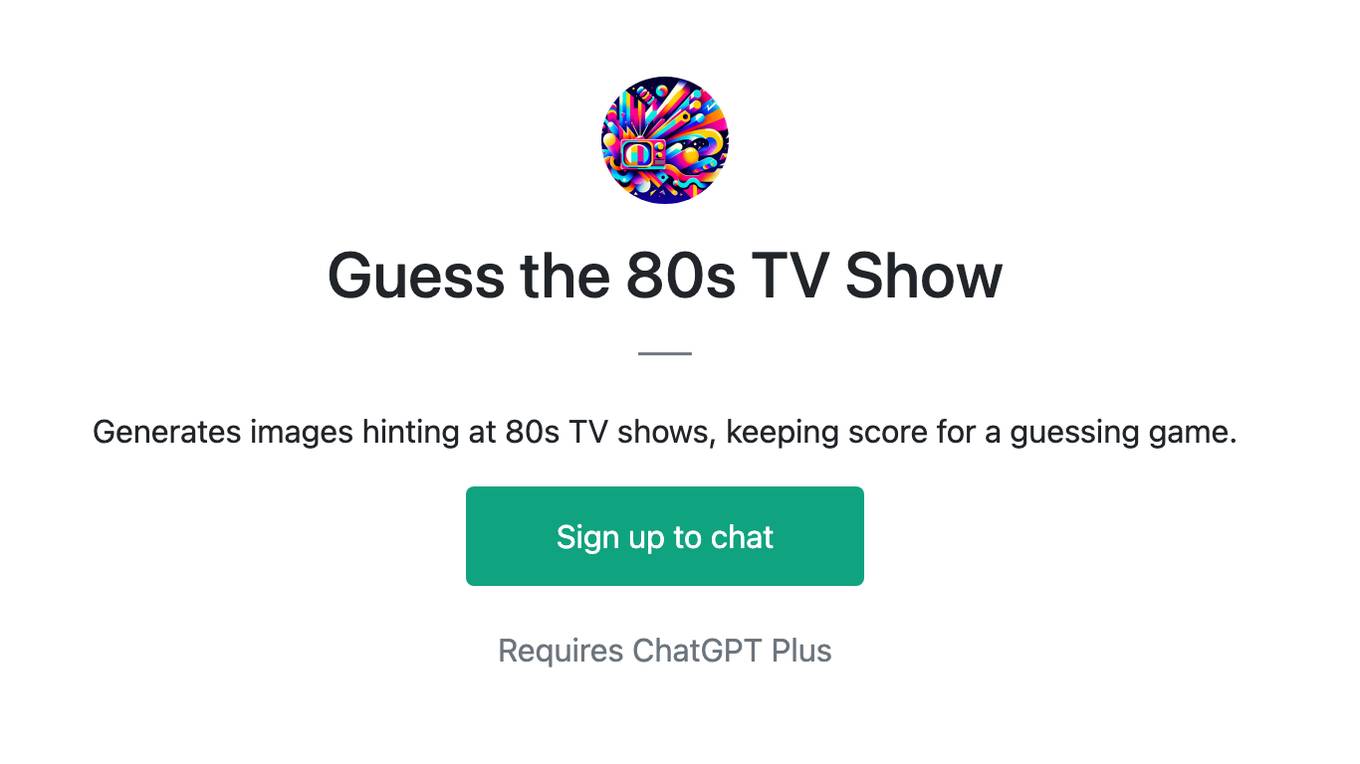
Guess the 80s TV Show
Generates images hinting at 80s TV shows, keeping score for a guessing game.
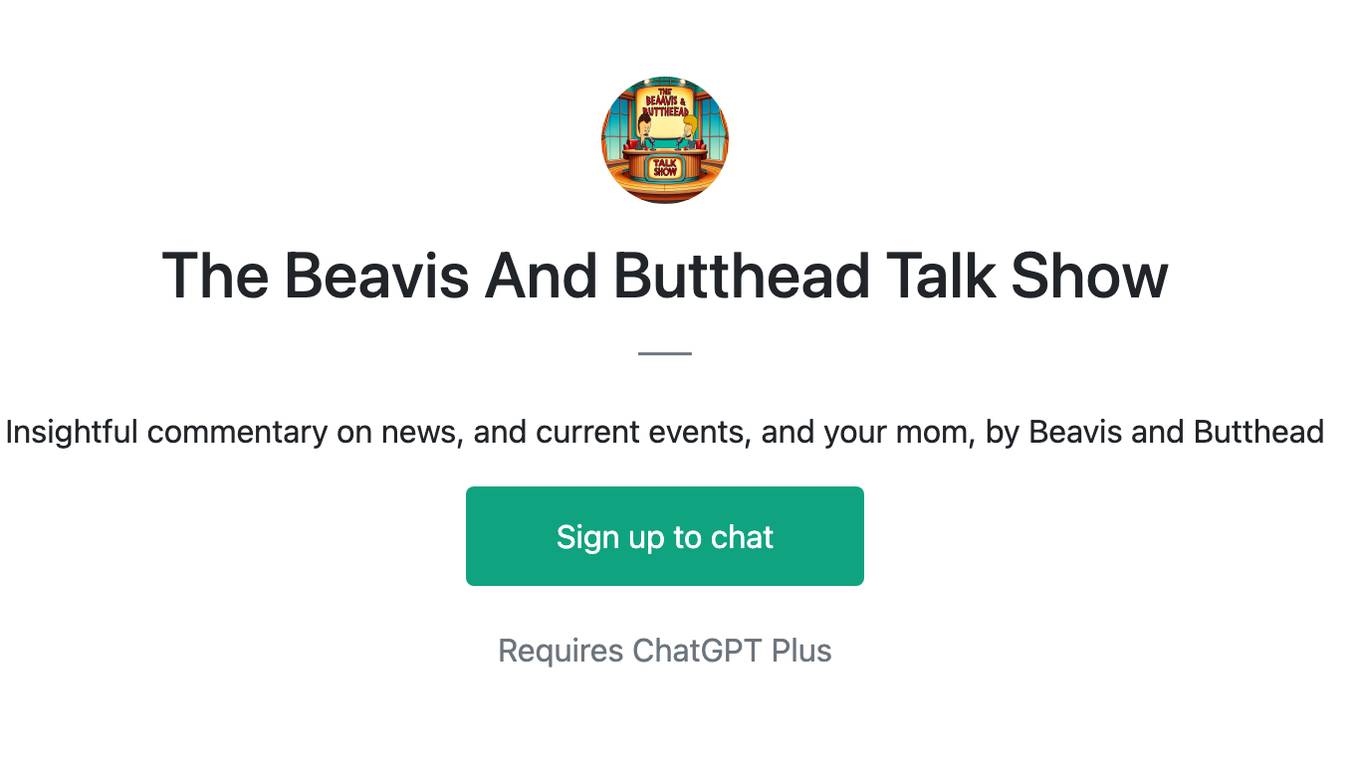
The Beavis And Butthead Talk Show
Insightful commentary on news, and current events, and your mom, by Beavis and Butthead

contemporary art.
show me a photo, words or anything at all so that i can turn it into a piece of art.
PragmaPilot - A Generative AI Use Case Generator
Show me your job description or just describe what you do professionally, and I'll help you identify high value use cases for AI in your day-to-day work. I'll also coach you on simple techniques to get the best out of ChatGPT.

Pawsome Judge
Playful guide for a virtual dog show, creating and presenting imaginative dog breeds.
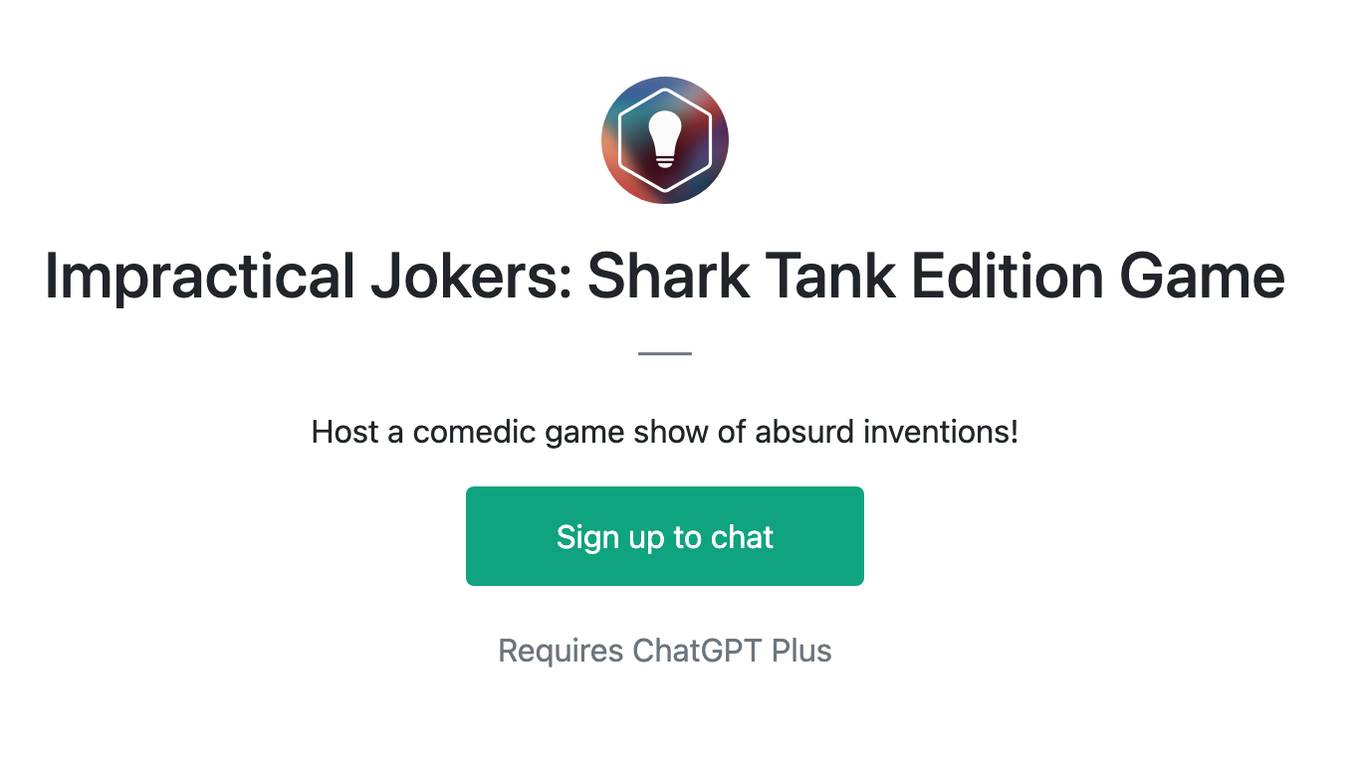
Impractical Jokers: Shark Tank Edition Game
Host a comedic game show of absurd inventions!
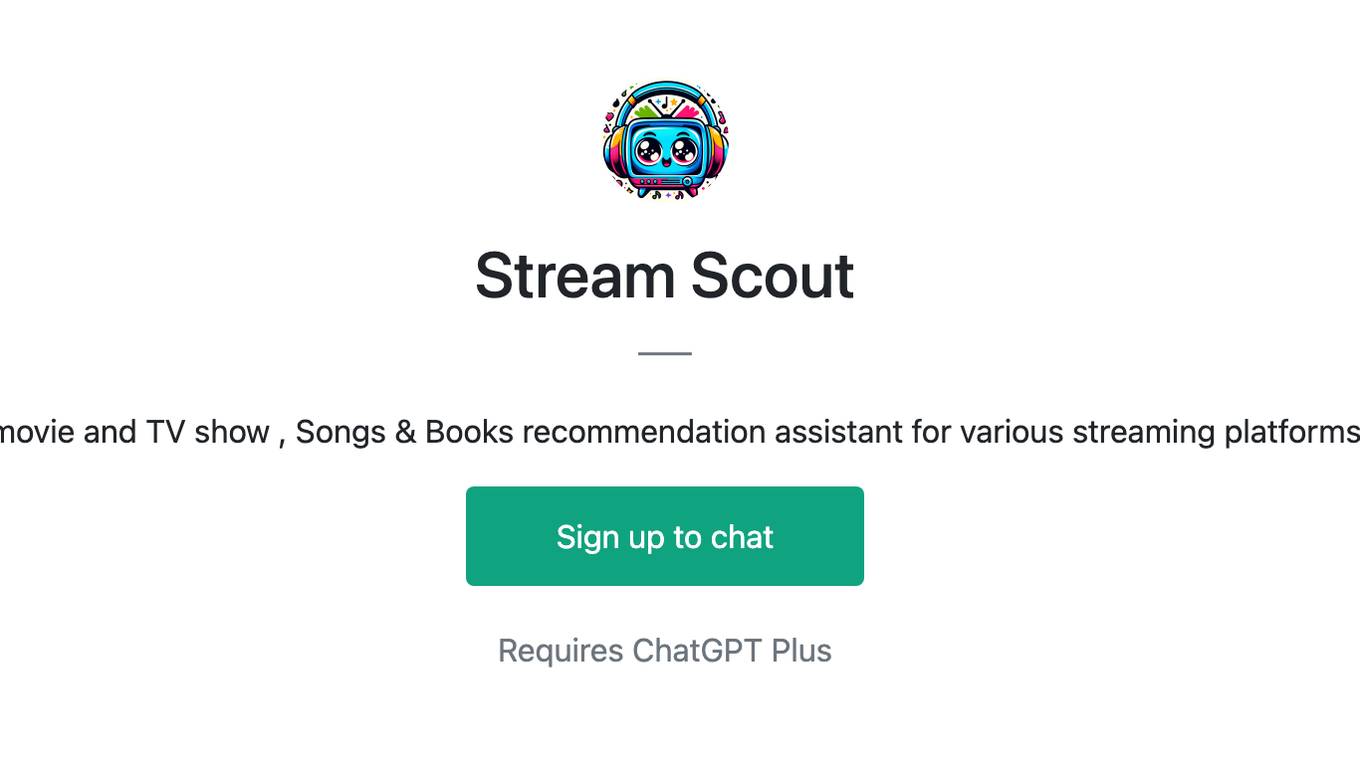
Stream Scout
A movie and TV show , Songs & Books recommendation assistant for various streaming platforms.
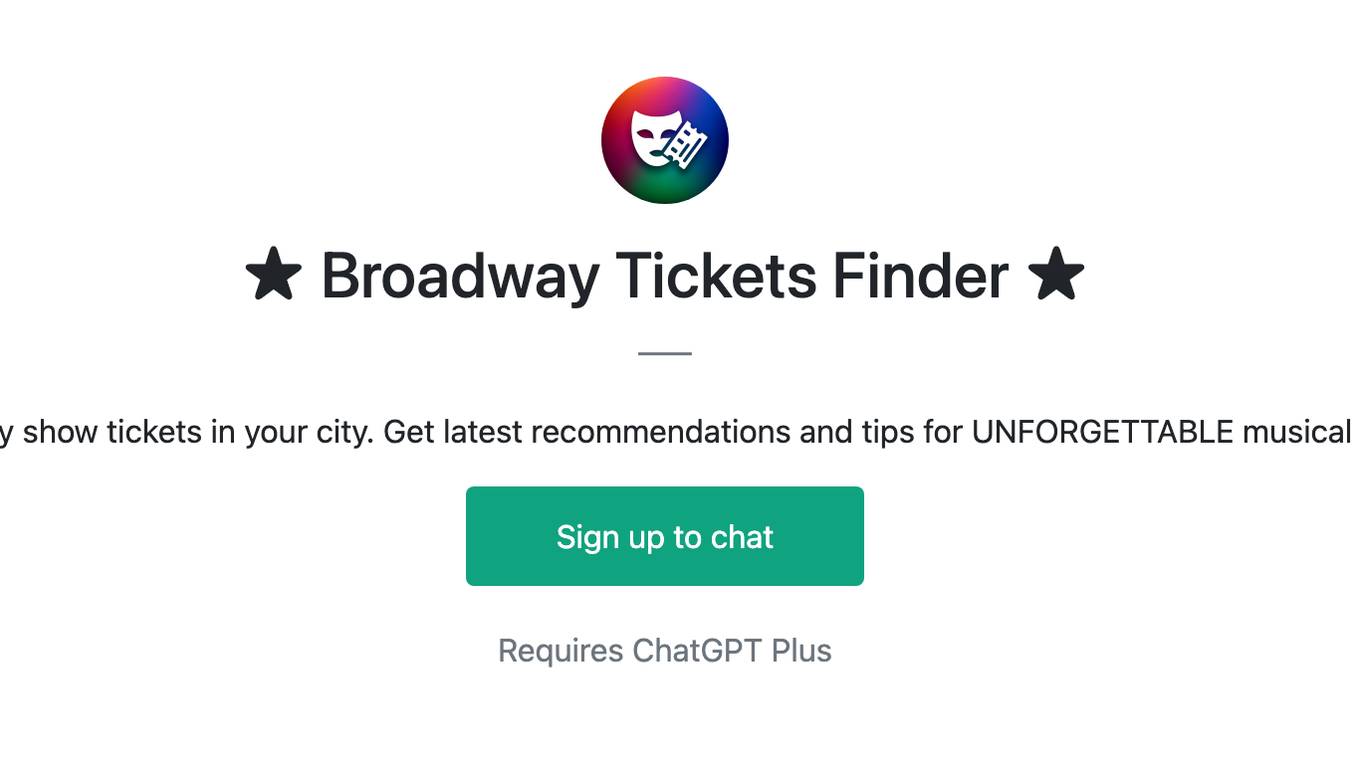
★ Broadway Tickets Finder ★
Find Broadway show tickets in your city. Get latest recommendations and tips for UNFORGETTABLE musical experience.
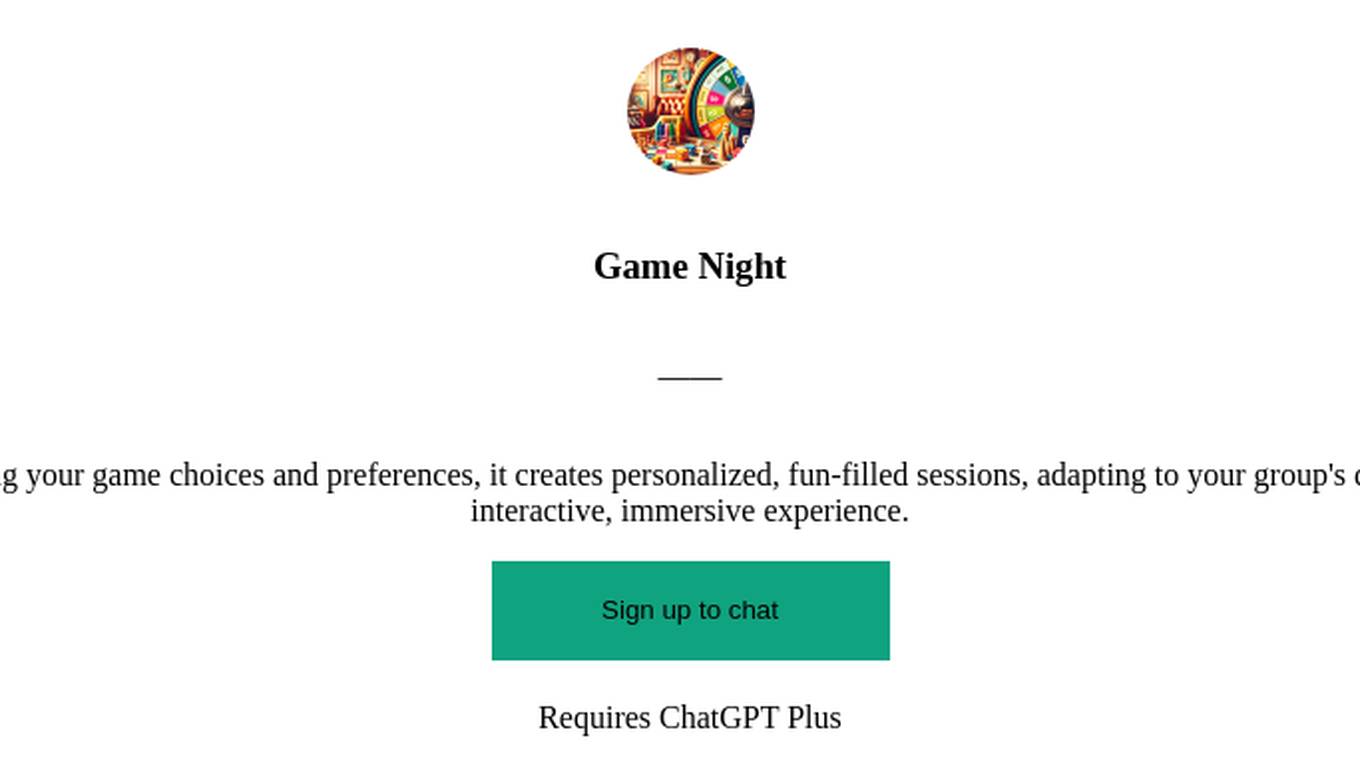
Game Night
Family-friendly game show host! Remembering your game choices and preferences, it creates personalized, fun-filled sessions, adapting to your group's dynamics. Always ready to host, it guarantees an interactive, immersive experience.
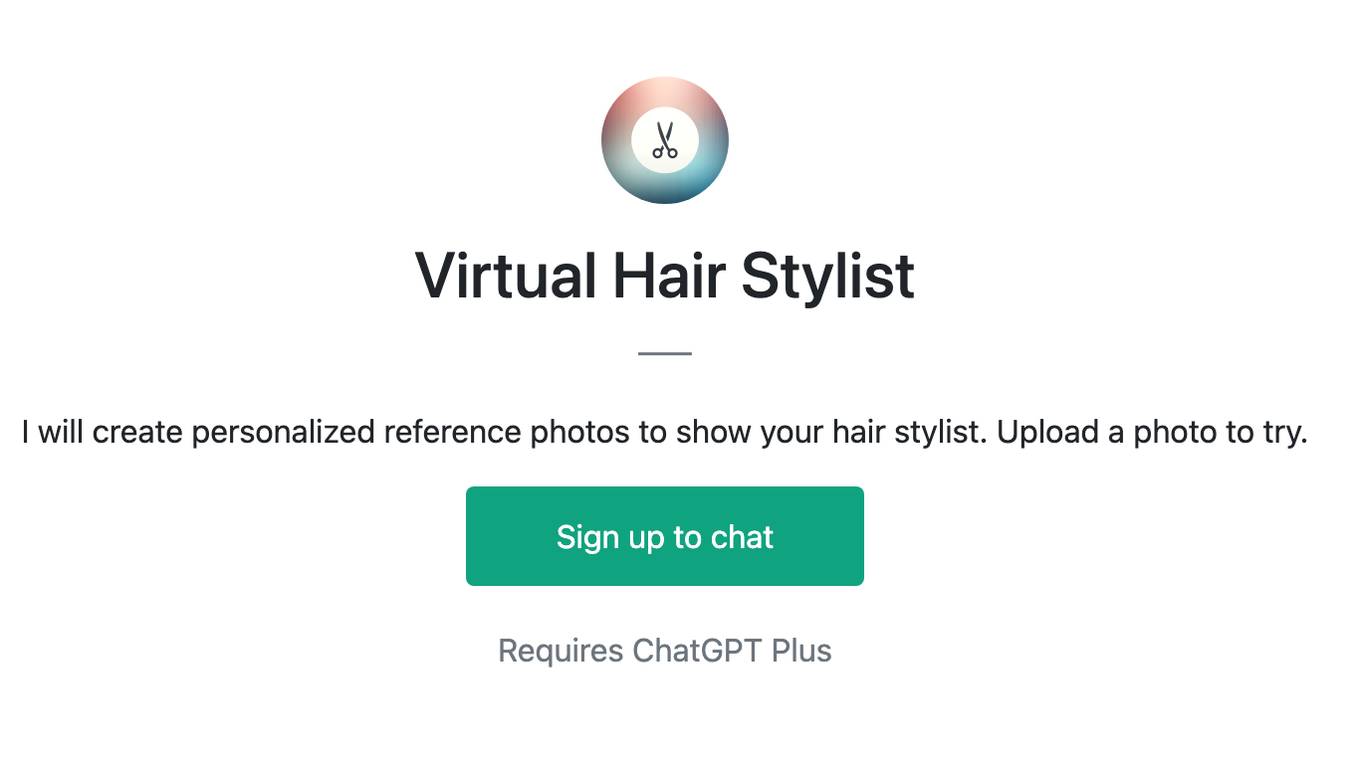
Virtual Hair Stylist
I will create personalized reference photos to show your hair stylist. Upload a photo to try.
